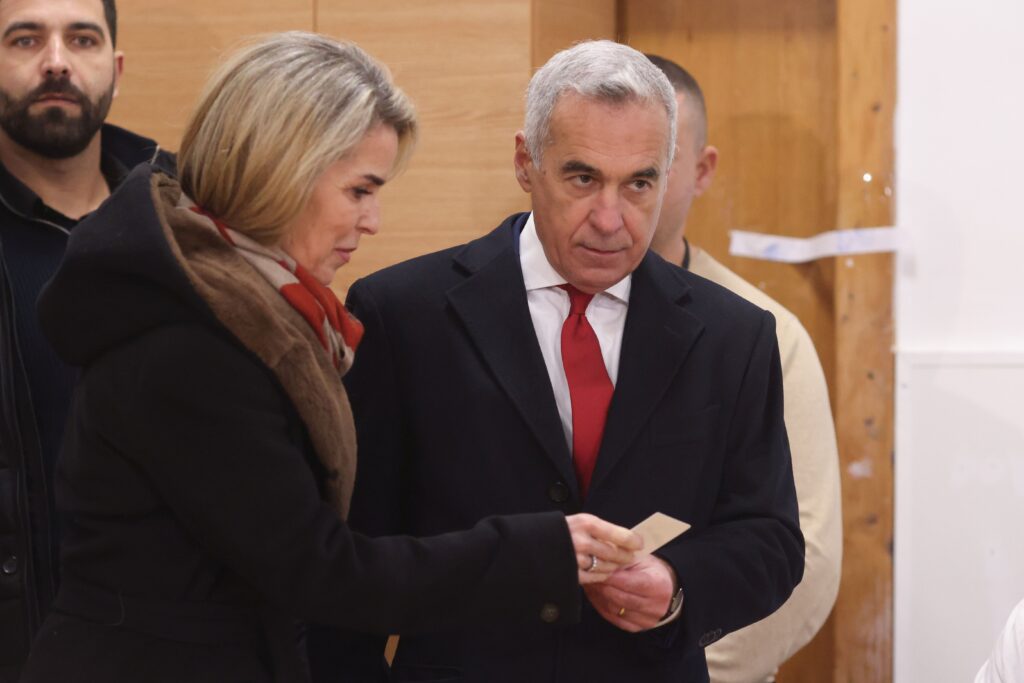The anti-system vote in Sunday’s elections shows an electorate increasingly dissatisfied with the political class. Sanctioning traditional parties leads to a fragmented parliament with a high potential for gridlock.
Sunday’s parliamentary elections keep PSD in the lead, but with the lowest score in the history of this party, around 23%. Following are AUR with over 17%, PNL with 14%, USR with 12%, SOS with 7%, UDMR with 6%, and Călin Georgescu’s party, the Party of Young People (POT), with 6%.
The Progressives from SENS, with a program dedicated to young people, struggle to reach 3%, while a party that cloned PSD and was allowed to compete with a similar logo has nearly 2% of the 9.5 million votes cast.
The arithmetic before the redistribution of votes from parties that did not enter Parliament shows that no majority can be formed without PSD.
The extremists gather around 30% and will have an important platform to launch their messages.
The so-called right-wing formations will not be able to form the government alone, just as PSD+PNL+UDMR cannot rebuild the "coalition of stability."
The democratic spectrum is fractured by controversies of the recent past and resentments. Moreover, PSD has always planned to secretly involve the Chinese in the state's strategic affairs, as it favored the Russians before and after 2004.

The fragmentation of Parliament between Atlanticist forces and extremists could lead to a dysfunctional government and a series of political crises superimposed on the major economic crisis foreshadowed by inflation and announced by the leaders of the World Bank and the European Central Bank.
The conflict in Ukraine will now be scrutinized by a Parliament of radicals who, aided by the parliamentary platform, will be able to bring forth all new conspiracy theories.
The results of the parliamentary elections do not clarify the outcome of the presidential race. PSD does not want to urge its electorate to vote for Elena Lasconi and is embarrassed to support Călin Georgescu. However, Romania has always had exemplary mobilization of the democratic electorate in important moments.
The anti-system vote was massive both in parliamentary and presidential elections, where the two candidates in the final round represent those dissatisfied with the current political and administrative system.
People no longer trust the old leaders and the old system. If traditional parties do not understand this message, they risk becoming increasingly insignificant.
The absence of political reforms, widespread corruption, and favoritism towards political clientele against meritocracy have brought extremists to nearly 30%.
Even if they do not reach government, they already have enough power and visibility to do harm if state institutions remain passive.
For example, on Saturday, November 30, nearly a hundred people commemorated Corneliu Zelea Codreanu in Tîncăbești, the leader of the Legionary Movement, renowned for extreme violence against Jews and political assassinations during the interwar period.
It was not just a religious service but also a ceremony where the Nazi salute was rehearsed, and those present sang old Legionary songs. Diana Șoșoacă was also there to lay flowers at dusk and shared everything on social media to show everyone that she venerates the Captain.
Romania has solid legislation that can stop all these dangerous manifestations, but the magistrates either do not bother much or are sympathizers themselves.
Călin Georgescu considers Zelea Codreanu and Ion Antonescu as "martyrs" of the Romanian people, who "have also done good deeds." The General Prosecutor's Office opened a criminal case against him in 2022, but quickly closed it "due to lack of evidence."
For 35 years, state institutions have allowed such commemorations. With 30% of extremist parliamentarians nostalgic for Legionarism and Nazism, Romania could enter a different paradigm, as could the entire Europe, especially since the majority formed by democracy advocates will be quite fragile and complicated to assemble.

